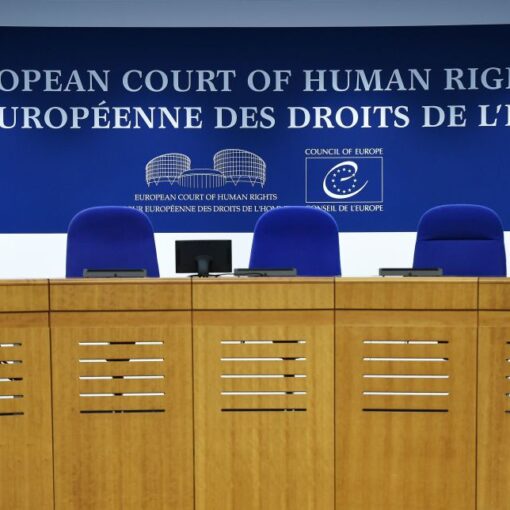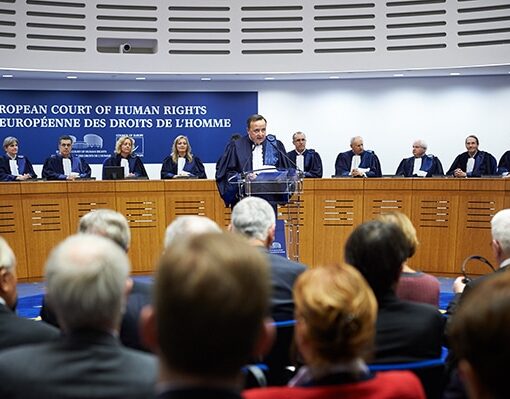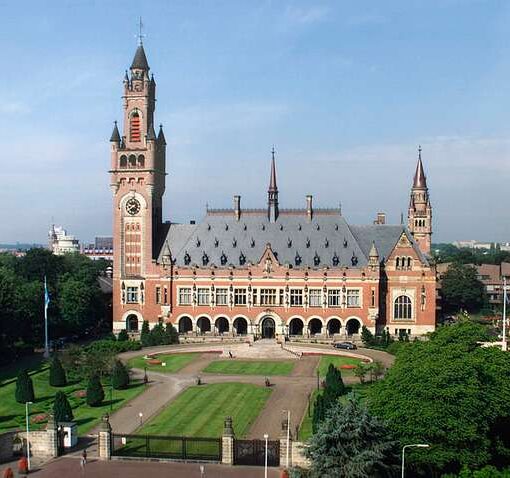According to the Intergovernmental Panel on Climate Change (IPCC), Africa has the lowest per capita greenhouse gas (GHG) emissions of any region in the world but is already facing widespread and devastating climate impacts. Despite contributing so little and suffering so much, the continent receives only a very small proportion of global climate finance and significantly too little to begin to address its climate needs. A report by the Climate Policy Initiative in 2024 found that Africa received only 20% of global adaptation finance (about 45% went to East Asia and the Pacific region) and that most of that money went to only 10 countries in Africa. Loans constituted the largest funding category and those were mostly made to middle-income countries.
It is perhaps unsurprising then that African participation in the advisory proceedings on climate change at the International Court of Justice (ICJ) was relatively high. The African Union (AU) and more than 45 African States made written and oral submissions to the ICJ. These submissions emphasised, among other points, the significant harm climate change is inflicting on the continent and its peoples, and the importance of holding high-emitting States responsible for their historical greenhouse gas emissions. However, Africa received no substantial mention in the ICJ’s advisory opinion.
In this blog post, I assess whether one can, nevertheless, find an African perspective in the reasoning of the ICJ judges. Since Africa gets little mention in the advisory opinion, I do this by looking at the separate opinions of Vice President Sebutinde, Judge Yusuf, and Judge Tladi, the three African judges to the ICJ.
Should we look to African judges for an African perspective?
This inquiry – looking for an African perspective by looking at the separate opinions of the African judges – raises two critical preliminary questions. First, why should judges from Africa – more than any other or, indeed, at all – be expected to provide an African perspective? Second, what counts as an ‘African perspective’?
I will briefly address the first question but, given the limited space in this blog post, simply acknowledge the significant political, ontological, and epistemological challenge of the second. While identifying what an African perspective is raises multiple questions, it is my belief that this should not discourage one from recognising the absence of African perspectives in context where there should, arguably, be one (spoiler alert: as is the case here).
Why look to African judges to provide an African perspective? The expectation that a judge represents the perspectives or attitudes of a country or a whole region is, clearly, problematic. The Rules of the ICJ provide that, once elected, a Member of the Court is a delegate neither of the government of his own country nor of that of any other State. As the ICJ’s website explains, “the Court is not composed of representatives of governments. Members of the Court are independent judges whose first task, before taking up their duties, is to make a solemn declaration in open court that they will exercise their powers impartially and conscientiously.”
While this rule seeks to ensure judicial independence and impartiality, it has also been important in international diplomacy and in the political relationship of states to the ICJ. For example, Uganda recently distanced itself from the decision of Judge Julia Sebutinde in South Africa’s genocide case against Israel. Sebutinde was the only judge to vote against all six measures adopted by the Court in the Order of 26 January 2024, prompting the Ugandan government to state: “The position taken by Judge Sebutinde is her own individual and independent opinion, and does not in any way reflect the position of the government of the republic of Uganda.”
At the same time, however, judges are taken as acting and are often expected to act, at least in some sense, as representatives of the countries and regions they come from. Article 9 of the ICJ Statute requires (in its colonial phrasing) that “the body as a whole” should represent “the main forms of civilization and of the principal legal systems of the world.” Regional representation in the make-up of the members of the Court is seen as critical to the legitimacy and political acceptability of the Court. This is especially true for Africa. As the ICJ’s then President, Judge Yusuf, has noted, at independence many African states were reluctant to be a party to the ICJ due to a lack of African representation on the bench. In 1960, there was, for the first time, just one African judge on the bench. Yusuf argues, “the African states therefore questioned whether this institution could represent African views and perspectives on international law, and whether it could understand the situation and needs of Africans. They discovered soon enough that many of the judges had a colonial conception of Africa and did not know very much about the continent.” This suggests an expectation that the appointment of African judges would ensure the representation of African perspectives, views, and understandings of the continent in the work of the ICJ.
Judges do take up this representative mantle, especially in the context of separate opinions. Itamar Mann has written about the role of judges’ identities and histories in minority opinions. These personal experiences often play a crucial and valuable role in articulating the gaps or nuances in the ICJ’s assessment of a matter. At the same time, the reliance on personal identity in judicial reasoning has been subject to critique. The identity Judge Sebutinde brought to her separate opinion in the January 2024 order was one informed by a conviction that “the crisis in Gaza was a sign of the ‘End Times’” and that “the Lord [was] counting on [her] to stand on the side of Israel.”
While Mann’s interest is in the personal identities of the judges, the examples he discusses demonstrate that these experiences, while personal, are also often geo-political, mapping onto histories of colonialism, apartheid, genocide and resistance struggles against unjust legal orders. Judges bring themselves into the court room and, in doing so, bring the history, context and experiences of their countries and regions.
As Members of the Court, Sebutinde, Yusuf and Tladi do not represent their countries or continent, and they have no obligation to consider an African perspective on any matter before them. They do, however, have the opportunity to do so – to bring their African identities, history, context, understanding and legal traditions into their opinions without compromising their impartiality and independence.
So, did they?
An African perspective? Judges Sebutinde, Yusuf and Tladi
Sebutinde, Yusuf and Tladi do not directly address the particular contribution, needs, or demands of African countries in relation to climate change. Sebutinde’s objections to the ICJ’s approach points to some of the themes highlighted by African States while Yusuf’s separate opinion comes the closest to directly addressing issues raised by the AU and African States.
Sebutinde’s separate opinion was critical of the ICJ’s opinion and, while she addressed a number of issues, her overall critique was that the ICJ simply failed to address the issue of climate justice (para. 1). She objected that the ICJ’s discussion of climate justice was, at best, vague. The ICJ, she argued, failed to respond to the questions put to it, specifically in relation to the thorny issues of duties owed to future generations (paras. 6-7), the right to self-determination in the face of territorial loss (para. 8), and the differentiated responsibilities of developed States (paras. 9-12). On the latter point, Sebutinde stated that the ICJ ought to have found that Annex 1 countries (high-emitting, developed countries as identified in the United Nations Framework Convention on Climate Change) have additional obligations in relation to climate change – “to take the lead in combating climate change” (para. 11). Importantly, Sebutinde stated that developing States, in their submissions to the ICJ, proposed innovative remedial, reparative measures emphasising and giving weight to the principle of Common but Differentiated Responsibilities (para. 9). In Sebutinde’s view, these should have been taken up by the ICJ, but instead the ICJ downplayed the principle, equating it merely to ‘equity’. The ICJ, on Sebutinde’s reading, did too little to protect the most vulnerable – both people and States – wasting its time instead, as she saw it, on matters better addressed in contentious proceedings (e.g., attribution and, causation and so on, which the ICJ addressed at length in paragraphs 421 to 438 of the opinion).
Like Sebutinde, Yusuf is critical of the ICJ, accusing it of producing a “learned scholarly dissertation” rather than a practical and concrete reply that engaged with the “material scope” of the urgent questions put to it (para. 2). Yusuf’s primary objection is to the ICJ’s rephrasing of the questions so as to avoid having to make a determination about the specific obligations of States that have made the predominant contribution to GHG emissions (paras. 3, 4 and 36). Yusuf is scathingly critical of what he sees as the ICJ’s efforts to downplay, dismiss or overlook the scientific and legal foundations for the historic responsibilities of certain States by instead articulating the causes of climate change as “the consequence of activities… of all States” (para. 14).
The ICJ, Yusuf argues, is called on to address a precise and material legal question: what are the legal consequences of “the failure of gross GHG emitting States to take appropriate action to protect the climate system from such emissions” and what is the entitlement of injured States given this failure? (para. 40). To answer this question, Yusuf finds that the Court ought to have considered not only the ILC Articles on State Responsibility but also the complimentary régime of international liability for injuries arising out of acts not prohibited by international law (paras. 42-46).
Yusuf’s separate opinion comes closest to addressing an issue at the heart of many of the African State’s concerns – accountability and reparation for historical emissions. However, as Michael Addaney has commented, Yusuf’s historical approach still falls short of addressing the unique colonial and neocolonial dynamics that shape Africa’s relationship to the climate crisis. Yusuf does not address the environmental and extractive nature of colonialism nor the deeply entrenched “neo-colonial trade systems that push African economies toward raw material export without industrialisation.” While Yusuf recognises a legal basis for reparation, he fails to spell out the kinds of structural, economic and legal reform that would be necessary for accountability and repair to address Africa’s climate past and its future.
In contrast to Sebutinde and Yusuf, Tladi’s separate opinion praised the ICJ’s efforts, repeatedly describing the opinion as robust. His separate opinion primarily sought to affirm and strengthen the findings of the ICJ, providing further evidence or argument for its assertions, more fully articulating what Tladi took as the basis of the ICJ’s reasoning.
Tladi’s critical concerns with the ICJ’s reasoning related exclusively to the consequences flowing from erga omnes obligations and whether the consequences of such obligations vary when there is a breach of a jus cogens norm (paras. 34-37). It is, however, something of a technical point as the interpretation of these obligations only came up indirectly in the advisory opinion (although Tladi would argue that this is exactly the problem but that is a topic for a different blog post).
Tladi did provide important support to the ICJ’s finding that 1.5 degrees, rather than 2 degrees, is the temperature target of the Paris Agreement and that States do not have unfettered discretion to determine the content of their Nationally Determined Contributions (NDCs) (paras. 4-23). Rather, he agreed with the ICJ that NDCs “must be objectively capable of contributing towards the temperature goal” (para. 17).
In his separate opinion, Tladi articulated rigorous and stringent obligations on States under the Paris Agreement and customary international law. While Tladi’s legal reasoning in this regard is, as ever, rigorous and elegant, it did not engage with the questions and concerns raised by African (and other highly vulnerable) States. Unlike Sebutinde and Yusuf, Tladi is interested in this case in questions of law rather than principles of climate justice and historical accountability, and while he extracted a great deal out of the limited international legal texts, in some ways, the most interesting thing Tladi had to say about the advisory opinion is that, ultimately, he does not seem to think it matters all that much. The ICJ, he pointed out, has a limited role and, in the face of an existential problem like climate change he concluded that “no number of advisory opinions, no matter how robust or thoughtful, can save the planet from the ongoing climate crisis” (para. 38). Tladi, a judge on the ICJ, invited by the countries of the world, including African countries and the African Union, to lay out the obligations of States to address an existential climate change crisis, instead kicked the can down the road: “I still maintain modest hope”, he tells us, “Hope, that future generations will make better choices” (para. 39).
Silence on Africa
Despite the fact that Africa, as a continent, has contributed the least to climate change and is already suffering some of the worst of its impacts, with almost no financial support or relief from historical polluters, African concerns, arguments, and solutions got little attention in the ICJ advisory opinion. While Tadi and Sebutinde called on African idioms to articulate their response to the opinion, they fell short of articulating an African perspective on the obligations of States in relation to climate change.
While judges are expected to carry out their duties impartially and independently, they are, as discussed above, also often expected to bring an understanding and perspective of their homes with them, especially if they come from historically marginalised parts of the world. As Addaney has noted, “Given Africa’s history — colonial plunder, transatlantic slavery, apartheid, land dispossession, structural adjustment programmes, and exploitative international trade regimes — African judges at the ICJ were uniquely positioned to call for climate reparations rooted in historical responsibility and climate justice.” In this regard, all three of the African judges can be criticized for missing a critical opportunity to more fully represent African views and perspectives, as the continent is forced to bear the brunt of climate harm.
The ICJ’s advisory opinion and the separate opinions leave us with a question about what an African perspective on the obligations of States in relation to climate change is or ought to be. We may, however, soon have an answer. In May this year, the Pan African Lawyers Union (PALU), supported by civil society organizations including the African Climate Platform, Natural Justice, Resilient40, and the Environmental Lawyers Collective for Africa, filed a petition before the African Court on Human and Peoples’ Rights requesting an Advisory Opinion on the human rights obligations of African states in the context of climate change. We can only hope, contra Judge Tladi, that a growing number of advisory opinions can do something to save the planet from climate crisis.
* Acknowledgment: Thank you to Dr Maria Antonia Tigre for kindly providing me with systematized data on African State and organisation participation in the advisory opinion process, part of an ongoing research project she is currently undertaking. Special thanks to Michael Addaney and Nabintu Wa Nciko for their critical and insightful feedback on this post that informed my revisions. Any mistakes are my own.

Dina Lupin
Dina Lupin is a lecturer at the University of Southampton Law School in the United Kingdom.




